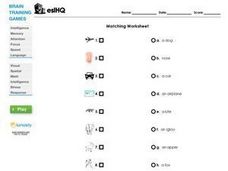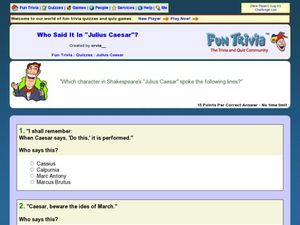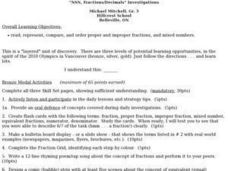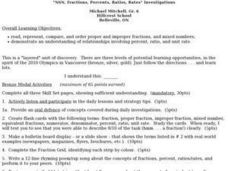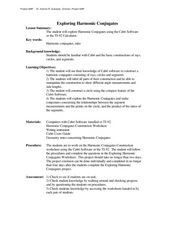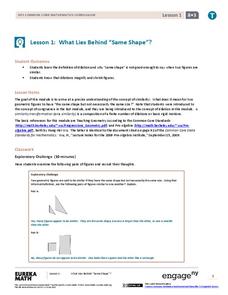Curated OER
ESL: Beginning Vocabulary Matching
Beginning English Learners match 10 line-drawn pictures of basic nouns with their names, such as kite, airplane, goat, and igloo. Indefinite articles are included, so this exercise also provides reinforcement for the a/an rule.
Curated OER
Who Said it in "Julius Caesar"?
This 10-question online interactive quiz tests readers' basic understanding of Shakespeare's play, Julius Caesar. It does not require critical thinking or analysis.
Curated OER
Richard the Second #1: Fun Trivia Quiz
If you are working on Richard II in your class, you might find this brief online interactive quiz useful. While not the most innovative quiz, you might draw a few questions about basic plot understanding from this resource. If you use...
Curated OER
Richard the Second #2: Fun Trivia Quiz
Challenge your class to recall information about Shakespeare's Richard II. This online quiz provides fifteen questions based on characters and basic plot points. Use it as a check for understanding or a quick sponge activity. Since this...
Curated OER
The Taming of the Shrew: Fun Trivia Quiz
If you want a quick way for your class to get feedback on their basic understanding of Shakespeare's Taming of the Shrew, you might take a look at this online, interactive quiz. It is important to note that it does not require critical...
Curated OER
Numeracy Practice- Going Out For Lunch
In this math activity, students complete the various types of activities that include graphs, data tables, and completing number sentences.
Curated OER
Many Chairs, One Table
Students examine artwork and sculpture by Keith Haring. They decorate a chair with their own symbols and designs.
Curated OER
"NSN, Fractions/Decimals" Investigations
Fifth graders engage in a "layered" unit of discovery. There are three levels of potential learning opportunities, in the spirit of the 2010 Olympics in Vancouver (bronze, silver, gold). The lesson is based upon fractions.
Curated OER
Discovering the Area and Perimeter of Triangles
Eighth graders identify how to find the area and perimeter of rectangles and triangles. They discuss their understanding of area and perimeter and how the two concepts are applied in the real world. Finally, 8th graders determine the...
Curated OER
Fact Families to 10
In this mathematics worksheet, 1st graders complete each fact family. Then they solve each addition and subtraction sentence using counter to show their sentence. Students also explain their idea of what a fact family is to them.
Minnesota Literacy Council
Adult Computer and Employment Skills
Whether you are an experienced computer user or a newcomer to technology, a packet full of computer vocabulary, tips, and guided practice is sure to enhance your technological knowledge. Learners can hone their word processing skills and...
Curated OER
"NSN, Fractions, Percents, Ratios, Rates" Investigations
Sixth graders engage in an investigation about the concepts related to fractions. They read, represent, compare, and order proper and improper fractions, and mixed numbers. They demonstrate an understanding of relationships involving...
Curated OER
A Fibonacci Primer
Upper graders explore the Fibonacci sequence. They examine the characteristics of the Fibonacci sequence, list the properties of the sequence and determine how it connects to Pythagorean Triples. Related thinking questions are included.
Curated OER
Exploring Harmonic Conjugates
High schoolers investigate harmonic conjugates using Cabri Software or the Ti Calculator to analyze harmonics. They explore different angles measurements as they move their circles around and solve problems.
Curated OER
Cartoons for the Classroom: Sarcasm, Irony, and Satire
Satire, sarcasm, or irony? Editorial cartoons have long been the tool artists use to express their opinions about politics and politicians. Kevin "Kai" Kallaugher's four-panel cartoon offers readers an opportunity to examine how he uses...
EngageNY
What Lies Behind “Same Shape”?
Develop a more precise definition of similar. The lesson begins with an informal definition of similar figures and develops the need to be more precise. The class learns about dilations and uses that knowledge to arrive at a...
Columbus City Schools
Asexual and Sexual Reproduction
Can you name a type of reproduction that produces no variation in the offspring? The multimedia lesson covers both sexual and asexual reproduction through videos and discussions. It includes topics such as genetic modification, meiosis,...
Daughters of the American Revolution
Lesson 2: How Do We Determine the Value of Education?
Have women always had the same educational opportunities as their male counterparts? Young historians read an 1819 essay by Emma Willard on the state of female education in the 19th century before discussing their views regarding women's...
University of North Carolina
Clichés
When it comes to writing, cliches are as old as dirt. A handout on tired phrases provides examples of cliches, as well as a description of the negative effects they have on a paper. Writers discover specific words and phrases to avoid,...
Poetry4kids
How to Write a “Backward” Poem
If you like poetry, wait till you try backward poetry! Young writers read Shel Silverstein's "Backward Bill" before writing their own funny poems that are full of backward imagery and phrasing.
PHET
Learning about Space Weather
Is the sun the only celestial body with magnetic fields? A guided discussion on the weather in space is designed with a mix of questions, discussions, explanations, and applications. Additionally, the resouce includes an...
NASA
Space-Based Astronomy on the Internet
Young scientists compile everything they have learned into a report in the fifth and final lesson in a unit on the visible light spectrum. Access to photos from observatories, telescopes, and satellites allows learners to compare...
University of Texas
Lives of Stars
Stars exist from a few million years to over 10 billion years, depending on their mass. Scholars perform a play acting as stars to learn about their different life cycles. They develop an understanding of many of the fundamental concepts...
Teacher Created Materials
The Tragedy of Julius Caesar
Bring Julius Caesar to life with a reader's theatre approach that engages the entire class. The opening exercises model the importance of reading with expression while choral reading exercises permit class members to practice their...


